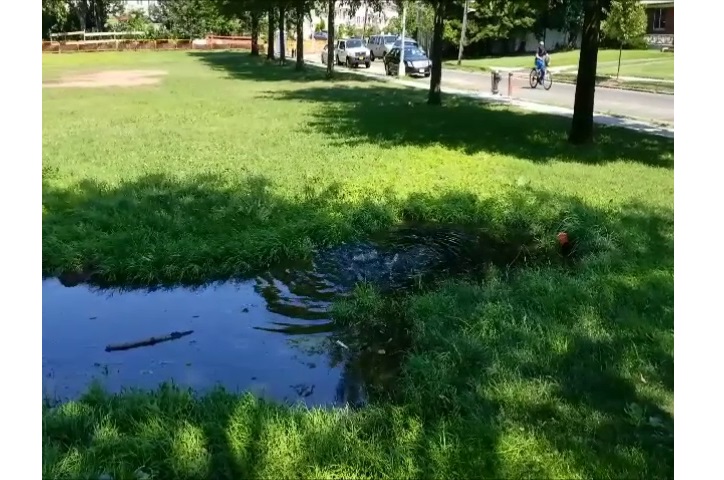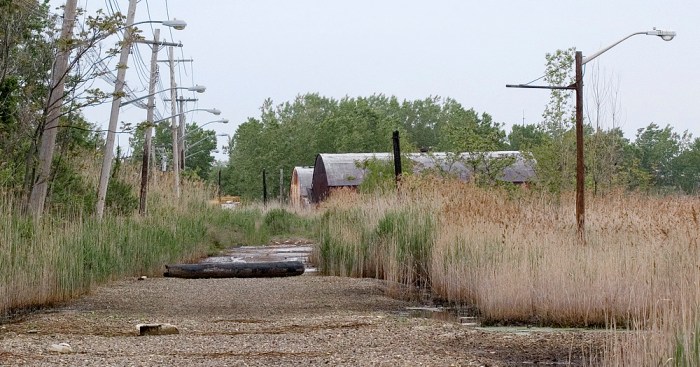At first glance, the bubbling puddle shown on video taken at College Point‘s MacNeil Park this weekend doesn’t look that bad. The smell and the contents of the water, however, told a much more dangerous story.
Dr. James Cervino, a local marine scientist, told QNS that the geyser popped in the park in the last few days. He took a sample of the water for testing which revealed that it contained two different types of bacteria — E.coli and enterococcus — typically found in raw sewage.
“You can just smell the raw sewage,” Cervino said.
At first, no one in the neighborhood knew for certain how or why the wretched geyser formed, according to Cervino. The city’s Parks Department, however, was able to provide an answer on Monday afternoon.
“There was a blockage in the sewer line which caused a backup in MacNeil Park,” a Parks Department spokesperson told QNS on Aug. 7. “Parks plumbers have been on site since 8 a.m. this morning to assess the situation. Parks hired a cesspool company to clear the line, and we are working with DDC (the Department of Design and Construction) to repair the issue.”
While the sewage-laden area was roped off, the rest of MacNeil Park remains open, the Parks Department added.
The Parks Department’s response came after state Senator Tony Avella — whom Cervino alerted about the condition over the weekend — reached out to the city’s Parks Department, the Department of Environmental Protection (DEP) and the Department of Health. He then followed up on Aug. 7 with a letter to the commissioners of all three agencies demanding that the problem be fixed, as well as a joint investigation to figure out what happened.
“At no time is it ever acceptable for raw sewage to be flowing out of the ground like a geyser, especially at a public park,” Avella said. “The city needs to finally do its job and begin to take care of the unsanitary conditions that exist throughout the city. Allowing these conditions to continue puts the people of New York in serious danger and is disgraceful.”
The condition in College Point was a potential health hazard to anyone who may have been exposed to the bacteria in the sewage-laden water. E.coli infections cause severe cramps, diarrhea, nausea and vomiting; left untreated, it can cause hemorrhaging in the digestive tract and lead to organ failure. Enterococcus can cause myriad infections ranging from urinary tract infections to even meningitis.
Cervino observed, however, that the damage might already have been done, as the contaminated water likely spread via runoff to a nearby oyster restoration project that he and the state Department of Environmental Conservation have worked on in an effort to help clean up the nearby Flushing Bay.



































